Yes. It is very difficult to learn Chinese as an overseas Chinese.
And I’m saying this as a person who has had the best opportunity to learn it.
At the very least, where I grew up in Singapore, I could find the environment to learn it very quickly if I wanted to.
Alas, no, I waited until 2014 before I started really putting some effort into learning Chinese.
I always joked that moving to Canada has improved both my English and Chinese. What an irony.
But it’s true. I have seen much improvement over these seven years and I’d like to share how I managed to do it.
I believe you can do it too. If you want to.
Why is Chinese so hard to learn?
I’d have to say the biggest problem I faced really came down to not having an environment that encouraged Chinese learning.
All my friends spoke English and almost all Singaporeans are bilingual. The latter meant that you could just skip all the difficult vocabulary in Chinese by filling the gaps with English.
Everything I watched was in English too. Thanks MTV, Cartoon Network, Nickelodeon and Days of Our Lives for filling my childhood with American culture.
Anyway, that was the problem.
I had a marked change in my motivation to learn Chinese in my 20s.
Living in Toronto, I met a much more international community. I met the smartest Chinese people and had a good time interacting with them.
Alongside that time spent with them came understanding and appreciating their culture.
I mean, we’re all Chinese here, but there are some differences between us. For example, I would always feel bewildered when some of my Chinese friends say they dislike eating Indian food because the smell is too strong.
I suppose it’s like some people finding the scent of durian to be a stench.
For the record, I hate the smell of stinky tofu.
I further went to China multiple times in the 2010s and really felt awestruck by what I saw.
Living in small city North America, those bullet trains and big city life felt like I just advanced 1,000 years into the future.
I think just having more contact with East Asian Chinese people (aka non-overseas Chinese) made me see the value of learning Chinese.
What benefits have I gained?
But what benefits have I gained from investing this time in myself?
With a deeper understanding of the Chinese language, I am much more able to connect with other Chinese people whose language is Chinese.
This is advantageous in helping you connect with someone else whether in a friendship, dating or business sense.
I have a pal who I met at university. He has a Chinese fiance and I almost always find that she’s much more able to express herself in Chinese.
Now, being able to speak and listen to Chinese is the aspect I find most important. The other side to it is reading.
Reading is pretty useful. You know how when you go to a restaurant and their menu is something that doesn’t make sense in English?
If you read the original Chinese names of the dishes, you’ll have a much better idea.
I mean, a youtiao is something most Chinese people will know. The translations will leave you completely bewildered because there’s no such equivalent concept in English.
A “Chinese donut” doesn’t make sense because a donut is almost always sweet, not savoury. And what is a “cruller?”
Can you imagine if people called churros a “Mexican donut” or “cruller?”
Go to Chinese language meetups
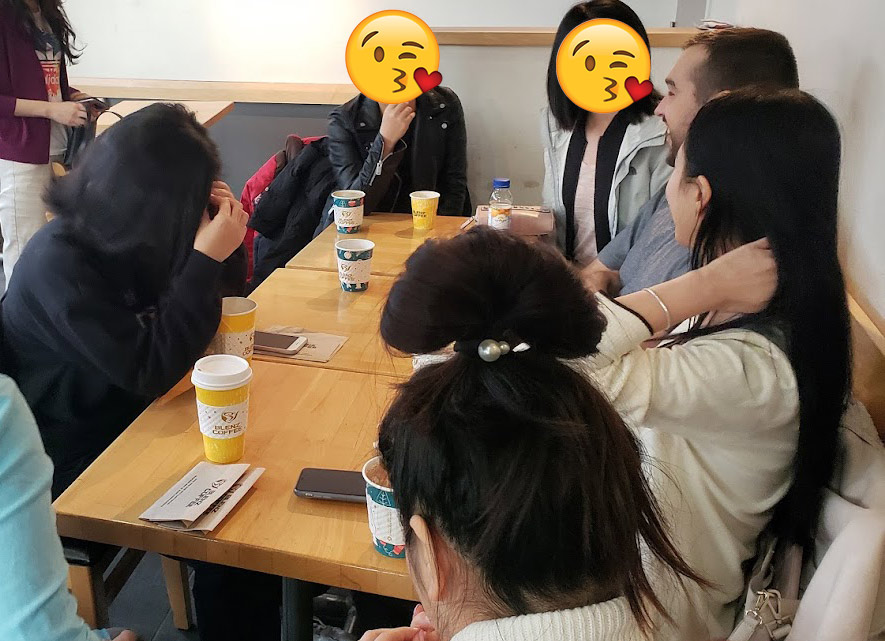
Hahaha, I still remember in 2014, I created my first Chinese language meetup.
Ever since then, everywhere I go, I try to seek out a Chinese language meetup so that I can constantly meet people and practise my Mandarin.
By spending these two hours every week, I notice improvement in my ability to speak Chinese on a year-on-year basis.
In addition, it’s also a very good method to make friends FAST.
When you go for these meetups, you might find people who are new to town. They are generally the most open to making new friends.
The downside is that these meetups require you to live in a major city. Smaller locales probably don’t have such a thriving community and it’s harder to make these connections.
However, online meetups are a thing these days so you can also try those. I personally find it too tiring to do it through a computer, but you might not…
My main source of these events is through Meetup.
Check in on this Discord Chinese language channel
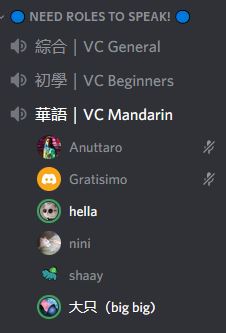
A few months ago, I joined a Discord channel named the “中英交流 Chinese-English Language Exchange.”
If you follow the link above, you’ll be invited into the chat room. There are a bunch of text chat channels and voice chat channels.
It’s a very active group so every night, you’ll be able to find people to have a voice chat with.
There are also rooms which are meant for beginners and rooms meant for more advanced people.
If you are learning Cantonese, occasionally, there will be a room with Cantonese speakers.
Install flashcards and dictionary
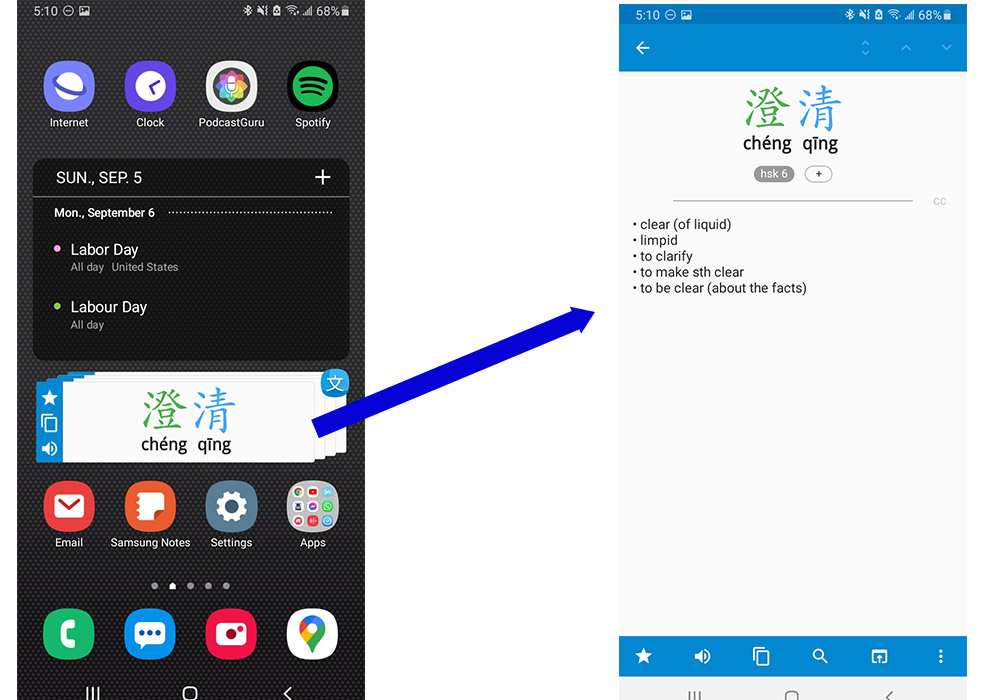
Every time you encounter a word you don’t know, check it against a dictionary and SAVE it.
Then, I put all of these words in a flashcard widget that I place at the home screen of my Android phone.
Not sure if there’s an equivalent on the iPhone. iPhones recently received widget functionality so you might be able to find it.
The app I use can be found on the Google Play Store and it’s called Hanping Lite. It’s free and it’s very good.
It’s really useful. You can type in pinyin and it’ll come up with some suggestions. Or you can type in the English word you want translated and it’ll help you do that.
Hanping Pop-Up and Chinese screen text readers
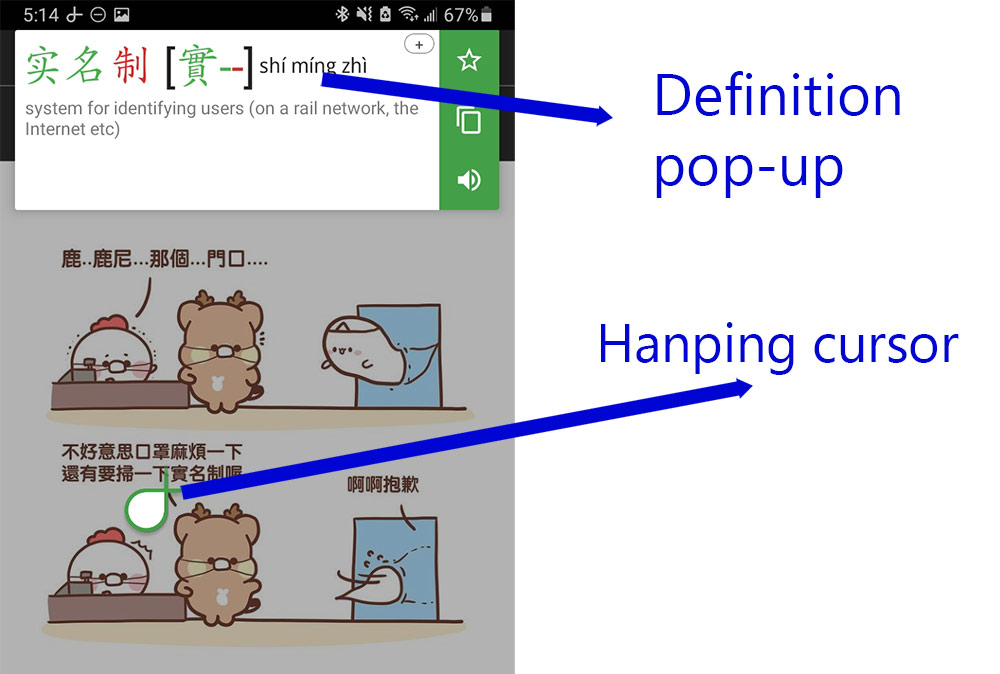
Hanping also has an add on called Hanping Chinese Popup: Screen OCR that helps me identify words that I don’t understand.
It’s a paid add-on but has been one of the best $10 I ever spent.
Once you activate the popup, you’ll see a cursor that you can drag onto text that you don’t understand. It’ll try to find the definition for you and it’s mostly successful if you use it over standard fonts.
It’s sometimes able to make out handwritten text, but not always.
This app has made reading texts, comics and subtitles so much easier. The alternative is to draw the character out to enter it into a dictionary. It’s a hassle because you’d have to open up another app and then draw the character out.
This add on is REALLY worth the expense. I have used it for a few years and can’t live without it.
Follow some people on Instagram, YouTube

Maybe one day I’ll be popular and people will be interested in following me.
But for now, I am a keen follower of Taiwanese comics, even though that requires me to get used to Traditional Chinese.
Sometimes, I won’t recognize the Chinese character and I’ll just use Hanping to help me identify the character.
Comics are a pretty good way to learn conversational Chinese, especially in slang and learning the name of everyday items.
Once you’ve followed a few people, the YouTube’s or Instagram’s algorithm will be smart enough to feed you more of them.
YouTube has a lot of interesting videos that you can watch. Naturally, most of the videos are from Taiwan and in Traditional Chinese because Chinese content creators are on their own platforms.
The screenshot above is from 理科太太 Li Ke Tai Tai. I find the host, Evelyn, super funny, super informative and also super difficult because she speaks super fast and with a lot of jargon. Nonetheless, it’s through repeated exposure to difficult words that helps you learn Chinese.
Learn Chinese in five minute blocks
You don’t know how many times I gave up.
Even with all the technological tools that we have today, I still struggle to read a wall of Chinese text.
So here’s how I find motivation: learning Chinese in five minute blocks.
You don’t have to spend an hour learning Chinese every day. That would massively improve your Chinese, but it would also drain you of all motivation.
Read some Chinese comics. Find out what the words you don’t recognize mean. Save them. That’s five minutes of effort.
Then, the next day, have a chat with a friend. Check the dictionary for words you don’t know in Chinese.
Sometimes, the dictionary’s translation is weird, and other times, you’ll find that you’re using very archaic ways of saying it. Native speakers will correct you if they don’t get it.
You’ll fail sometimes and you’ll be embarrassed.
But if you learn Chinese in bite-sized blocks, you’re less likely to give up because you can always see the end of the tunnel.
It works for me.
A lifetime and then some. It’s an especially difficult language because of how it morphs a lot and how slang and terms change from region to region. Nonetheless, if you can get to a HSK5 level, you’ll understand most conversations but ones with a lot of jargon.
Mandarin if you want the widest reach since it’s China’s official language. Cantonese is you want to connect with Hong Kongers or if you are Cantonese heritage. There are other Chinese dialects but for most people, there aren’t any reason to learn them.
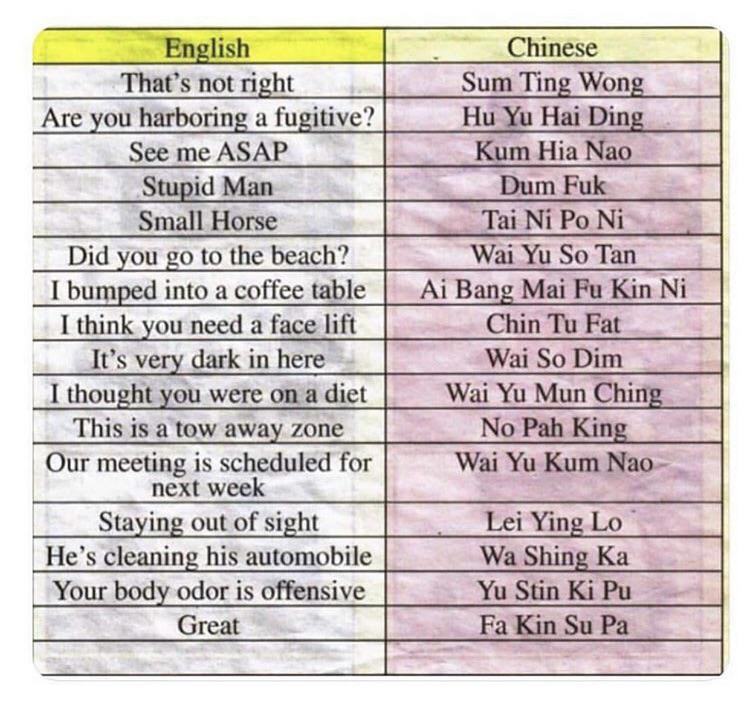
Leave a Reply